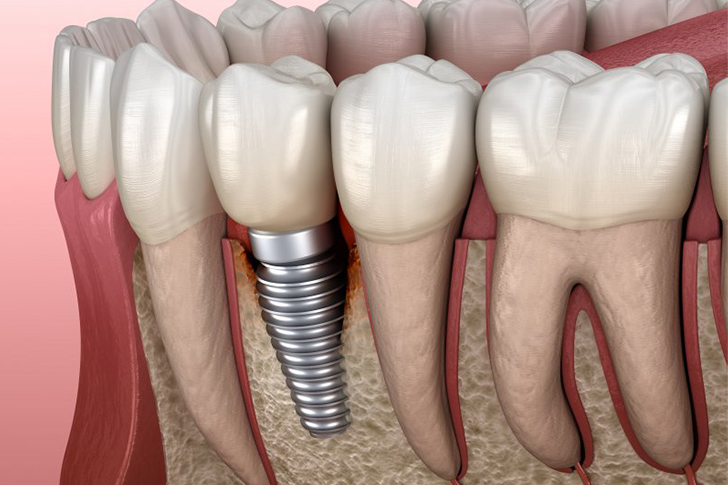Dental implants offer a reliable solution for missing teeth, enhancing both function and appearance. Here's an in-depth guide on dental implants, the osseointegration process, and tips for maintaining oral health.

Dental implants are artificial tooth roots, typically made of titanium, implanted into the jawbone to support a replacement tooth or bridge. They provide a sturdy foundation, resembling natural teeth in both form and function.
Osseointegration is the process through which a dental implant anchors to the jawbone. This biological bonding is essential for the stability and longevity of the implant.
A comprehensive evaluation, including X-rays and dental impressions, is crucial to determine bone density and optimal implant placement.
While the procedure is typically performed under local anesthesia, some cases may require sedation. Post-surgery, following your dentist's instructions on diet and oral hygiene is necessary to avoid complications.
Maintain excellent oral hygiene with gentle brushing and rinsing. Avoid hard foods that could disrupt the healing process.
Just like natural teeth, dental implants need regular brushing and flossing. Use a soft-bristled toothbrush and non-abrasive toothpaste to prevent damage.
Visit your dentist regularly for professional cleanings and to monitor the condition of your implants and overall oral health.
Refrain from smoking, chewing on hard objects, and consuming excessive sugary foods, as these habits can compromise implant stability and lead to oral health issues.
Dental implants look and feel like natural teeth, boosting self-confidence and eliminating the discomfort associated with removable dentures.
They provide a more efficient bite force, improving your ability to chew and speak compared to traditional dentures.
With proper care, dental implants are a good solution, lasting many years or even a lifetime.
Some discomfort is normal post-surgery, but pain can typically be managed with over-the-counter medication. If severe pain occurs, consult your dentist immediately.
While rare, complications such as infection, nerve damage, or sinus issues can arise. Choosing an experienced dental professional minimizes these risks.
Dental implants can be costly, but their good benefits often justify the initial investment. Many dental practices offer payment plans to make the process more affordable.
Monitor any changes in the fit or feel of your implants and report them to your dentist promptly.
Include foods rich in calcium and vitamin D to support bone health, which is vital for the longevity of your dental implants.
Understand the implant process and potential challenges so you can tackle any issues proactively and maintain optimal oral health.
Dental implants, with successful osseointegration and proper oral health care, can significantly improve the quality of your life. Being proactive in care and attentive to hygiene will ensure their good success and function.
Explore the Tranquil Bliss of Idyllic Rural Retreats

Ultimate Countdown: The 20 Very Legendary Gaming Consoles Ever!

Understanding Halpin and its Influence

Affordable Full Mouth Dental Implants Near You

Discovering Springdale Estates

Illinois Dentatrust: Comprehensive Overview

Embark on Effortless Adventures: Unveiling the Top in Adventures Made Easy Outdoor Equipment

Unveiling Ossur Valves: Innovation in Prosthetics

Unlock the Full Potential of Your RAM 1500: Master the Art of Efficient Towing!
